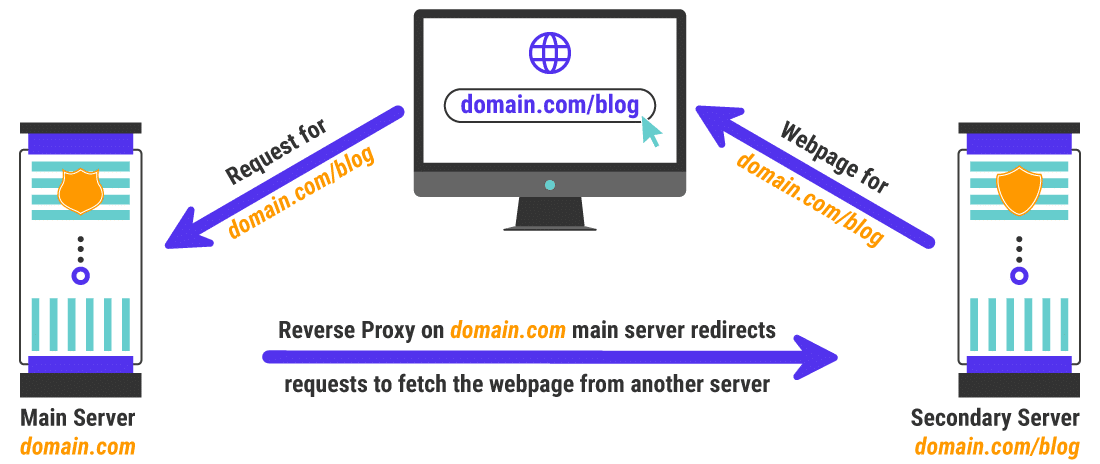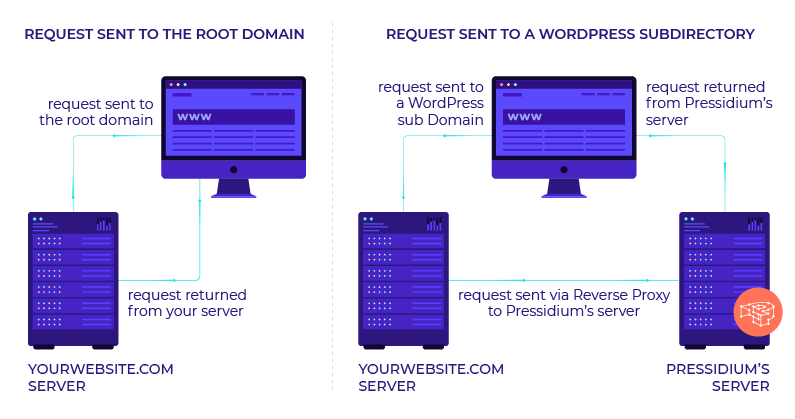Moz Q&A is closed.
After more than 13 years, and tens of thousands of questions, Moz Q&A closed on 12th December 2024. Whilst we’re not completely removing the content - many posts will still be possible to view - we have locked both new posts and new replies. More details here.
WordPress Sub-directory for SEO
-
Hi There,
I'm working on a WordPress site that includes a premium content blog with approx 900 posts.
As part of the project, those 900 posts and other membership functionality will be moved from the main site to another site built specifically for content/membership.
Ideally, we want the existing posts to remain on the root domain to avoid a loss in link juice/domain authority.
We initially began setting up a WordPress Multisite using the sub-directory option. This allows for the main site to be at www.website.com and the secondary site to be at www.website.com/secondary.
Unfortunately, the themes and plugins we need for the platform do not play nicely with WordPress Multisite, so we started seeking a new solution, and, discovered that a second instance of WordPress can be installed in a subdirectory on the server. This would give us the same subdirectory structure while bypassing WordPress Multisite and instead, having two separate single-site installs.
Do you foresee any issues with this WordPress subdirectory install? Does Google care/know these are two separate WordPress installs and do we risk losing any link juice/domain authority?
-
@himalayaninstitute said in WordPress Sub-directory for SEO:
WordPress can be installed in a subdirectory
I have done this a lot and I mean a lot what you want to do is set up a reverse proxy on your subdomain and this will allow you to not only bypass having to use multisite for subfolder but if you want to power it separately you can you do not have to it all. You should probably use your same server and power through Fastly our CloudFlare


once you set this up it is super easy to keep it running in your entire site will be much faster as a result as well
my response to someone else that needed a subfolder
https://a-moz.groupbuyseo.org/community/q/topic/69528/using-a-reverse-proxy-and-301-redirect-to-appear-sub-domain-as-sub-directory-what-are-the-seo-risksplease also look at it explained by these hosting companies is unbelievable easy to implement compared to how it looks and you can do so with Fastly or cloudflare in a matter of minutes
-
https://servebolt.com/help/article/cloudflare-workers-reverse-proxy/
-
https://support.pagely.com/hc/en-us/articles/213148558-Reverse-Proxy-Setup
-
https://wpengine.com/support/using-a-reverse-proxy-with-wp-engine/
-
https://thoughtbot.com/blog/host-your-blog-under-blog-on-your-www-domain
-
https://crate.io/blog/fastly_traffic_spike
*https://support.fastly.com/hc/en-us/community/posts/4407427792397-Set-a-request-condition-to-redirect-URL -
https://coda.io/@matt-varughese/guide-how-to-reverse-proxy-with-cloudflare-workers
-
https://www.cloudflare.com/learning/cdn/glossary/reverse-proxy/
-
https://gist.github.com/LimeCuda/18b88f7ad9cdf1dccb01b4a6bbe398a6
I hope this was of help
tom
-
-
@nmiletic The content section of the site requires a unique UI Design and other robust functionality, so having a separate theme/plugins in its own directory is going to be the way we go here. Thanks for your assistance!
-
@himalayaninstitute Have you thought about adding a page and making all of this new content a subpage? Or changing your permalink structure to include a category in the URL? You can then add all of these posts under that category and have the URL show up as www.example.com/category/page-or-post-name
-
The website at the subdirectory will be an online learning platform with a blog, online courses, memberships, gated content, etc. The content currently lives on the main site, so, it's great that we can move it into the subdirectory without taking a hit from Google.
Since these are fundamentally two separate websites, we're not concerned about needing to manage them independently.
Thanks again for your input and advice, we greatly appreciate it!
-
@amitydigital said in WordPress Sub-directory for SEO:
Google will view it as one site so you shouldn't have any issues from that perspective. The Google bot is just looking at pages and won't know/care that the underlying CMS that is running some pages is a different install than other pages. The downside is you now have two websites to maintain, two themes, two sets of files, etc... That may result in a bit of a headache in the future.
As @amitydigital put it, the issue with your approach would be repetitive tasks. You will not loose any DA nor PA (being that you implement a correct 301 redirection). What is going to be on the subdirectory?
-
Google will view it as one site so you shouldn't have any issues from that perspective. The Google bot is just looking at pages and won't know/care that the underlying CMS that is running some pages is a different install than other pages. The downside is you now have two websites to maintain, two themes, two sets of files, etc... That may result in a bit of a headache in the future.
Browse Questions
Explore more categories
-
Moz Tools
Chat with the community about the Moz tools.
-
SEO Tactics
Discuss the SEO process with fellow marketers
-
Community
Discuss industry events, jobs, and news!
-
Digital Marketing
Chat about tactics outside of SEO
-
Research & Trends
Dive into research and trends in the search industry.
-
Support
Connect on product support and feature requests.
Related Questions
-
Moz API Spam Score - Backlinks
Hi, everyone I am trying to get my website DA up. I have analyzed my competitors and thanks to Moz I have idea and insights of how my competitors get backlinks. But, some of them are old school techniques. Also my website has some PBNs no follow backlinks does it affect my website ranking? Their spam score is 10-40. But other competitors has them as well. Does anyone know indepth on this topic?
Link Building | | RejinKayastha1 -
Merging Pages and SEO
Hi, We are redesigning our website the following way: Before: Page A with Content A, Page B with Content B, Page C with Content C, etc
Intermediate & Advanced SEO | | viatrading1
e.g. one page for each Customer Returns, Overstocks, Master Case, etc
Now: Page D with content A + B + C etc.
e.g. one long page containing all Product Conditions, one after the other So we are merging multiples pages into one.
What is the best way to do so, so we don't lose traffic? (or we lose the minimum possible) e.g. should we 301 Redirect A/B/C to D...?
Is it likely that we lose significant traffic with this change? Thank you,0 -
Is .ME domain is effective in SEO ?
I am always listening about TLD. com. org .net but what about the .me domain. Can this will be effective in SEO. Can i able to beat down my competitors, if i choose .me . I also have a .com or other TLD option but if i am making my name than .me is for me but i need your suggestion for the seo purpose. Is there really domain affective in term of SEO.
Intermediate & Advanced SEO | | pnb5670 -
Domain Alias SEO
We have 5 domain alias of our existing sites
Intermediate & Advanced SEO | | unibiz
All 5 domain alias are domain alias of our main site. It means, all domain alias will have exactly same site and contents
Like Main domain: www.mywebsite.com
DomainAlias: www.myproduct.com, www.myproduct2.com, www.myproduc3.com
And if anybody will open our site www.myproduct.com, it will open same website which I have in primary site what can i do to rank all website without any penalty....i s there any way? This is domain alias of in hosting industry Thanks0 -
Does Google hate wordpress?
I have my categories pages set to noindex, follow. I deactivated the author and date based archives, and all the /page/2 /page/3 are noindex. Is this the right approach? I had thought about adding some text to the topic of each category page and then changing them to index. I'm using showing recent post excerpts on the homepage. Another other suggestions? I think two of my sites are in panda for no good reason. It seems like non-wordpress blogs in my industry do better than comparable wordpress sites.
Intermediate & Advanced SEO | | KateV0 -
What should I cover in a SEO proposal ?
What should I cover in a SEO proposal? Is there any sample SEO Proposal template in SEOMoz?
Intermediate & Advanced SEO | | kashyaplakkad1